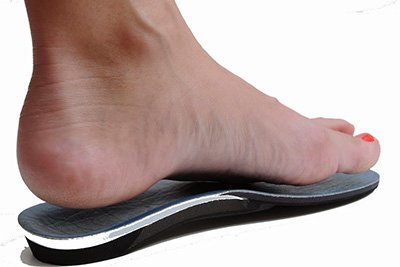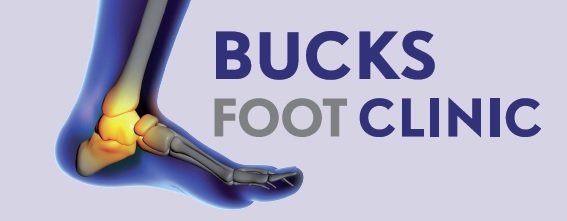
There are a variety of things that could go wrong with your feet. From minor issues like corns to larger ones like infections. Sometimes minor problems can turn major due to infection without proper care. A prime example of this would be ingrown toenails. When left untreated, they can go south very quickly due to the development of infections. That’s why it’s important to care for them before they reach this point. Especially in case you have a circulatory-related problem like diabetes.
But, who treats ingrown toenails? If that’s a question you have on your mind, this blog is for you. We’ll teach you a little more about ingrown toenails as well as who treats ingrown toenails.
What Are Ingrown Toenail Infections?
First, it would help to make it clear exactly what an ingrown toenail infection is and how it’s caused.
Ingrown toenail infections occur when the corner tip or edge of your toenail pokes into the skin surrounding it, instead of freely growing outwards. The toe that’s most likely to suffer from this issue is your big toe since it’s usually the one that’s most in contact with your footwear.
This condition is potentially very painful and can affect pretty much anyone, of all ages. Left untreated, an ingrown toenail infection can lead to other infections that may even spread into the underlying bone structure of your feet.|
If you have a condition that reduces the blood flow to your feet, like diabetes and peripheral arterial disease, you’re more likely to suffer from an ingrown toenail. In fact, if you suffer from any of these conditions, your ingrown toenail can turn sour very quickly and lead to severe complications. This is why it’s important to know the symptoms early on and treat it accordingly.
Who Treats Ingrown Toenails?
Ingrown toenails are treatable at home, but at-home treatments can lead to complications if not carried out properly and hygienically. These complications will require immediate attention from a podiatrist.
A Podiatrist is a medical specialist that helps with problems related to your feet and lower legs. We can deal with complications from health issues like diabetes and even treat minor and major injuries. People also call us Podiatric Physicians or Doctors of Podiatric Medicine, as well as Chiropodists.
Though a Podiatrist IS a doctor, we don’t go to traditional medical schools. There are separate schools and professional associations for Podiatrists. Doctors usually have an “MD” after their name, which stands for “Medical Doctor”. We have “DPM” at the end of our names. This stands for “Doctor of Podiatric Medicine”.
We can treat ingrown toenails, perform surgeries, reset broken bones, order lab tests or x-rays, and even rest broken bones. We’re completely licensed to do so, and we often work alongside other specialists that treat issues of the feet and lower legs.
Podiatrist vs. Chiropodist: What’s The Difference?
You may hear people use the term “Chiropodist” instead of “Podiatrist”. In truth, there is no difference between the two. They are interchangeable terms and both refer to foot specialists. The only real difference is that the term “Podiatrist” is relatively new compared to “Chiropodist”.
Another commonly used term to refer to podiatrists is “Foot specialist”.
How Do I Know If I Have An Ingrown Toenail Infection?
Now that you know what an ingrown toenail is, we can tell you what to look out for when self-diagnosing an ingrown toenail infection.
-You may have an ingrown toenail infection if you have any of the following symptoms:
-Swelling in the affected area
-Pain when you touch the area
-You feel pressure under your affected toenail
-Throbbing sensations in the area
-A foul smell coming from the affected area
-Warmth in and around the infected area (this is your body’s way of telling you that you have an infection, while also fighting off said infection)
-Hardened skin around the affected nail, accompanied by redness
-You may experience a build-up/ooze of fluid in the affected area
-Your nail is thick, yellowing, or cracked. This is a key symptom of a fungal infection and must never be ignored
-You may even develop an abscess that fills with pus, in the area where your nail has punctured your skin
-The edges of your nail have an overgrowth of new and inflamed tissue
Just like any other medical issue, an ingrown toenail starts with minor symptoms that can later on become more serious if not tended to. You must always try to identify an issue when it’s in its budding stage so you can take care of it before it gets too serious.
How Can We Help?
There are many ways in which our podiatrists can help you. They can give you advice and treatment to deal with discoloured toenails, nail infections, painful feet, cracksor cuts in your skin, growths like verrucas and warts, and more foot care-related issues.
Podiatrists can give you orthotics as well and can prescribe any medications you may need.
You don’t necessarily have to have a big issue to see a Podiatrist, as it’s recommended to visit one at least for a single session of consultation. Especially in the case of hard skin on your feet, or ingrown toenails.
Apart from this, Podiatrists can give you much-needed knowledge on foot care, like what kind of footwear to wear, and how to maintain foot hygiene.
They can also help with bigger issues and are very needed, especially for diabetic patients. They can treat issues and prevent them from recurring or becoming worse, and can also treat sports and exercise-related injuries.
Conclusion
Now that you know more about who treats ingrown toenails, what they are, and how to identify them, you may be looking for a podiatrist.
Look no further, Bucks Foot Clinic is here for you. Book an appointment with us today.
Please call us on 0800 107 3290 / 077 99 122 099 Or contact us now
